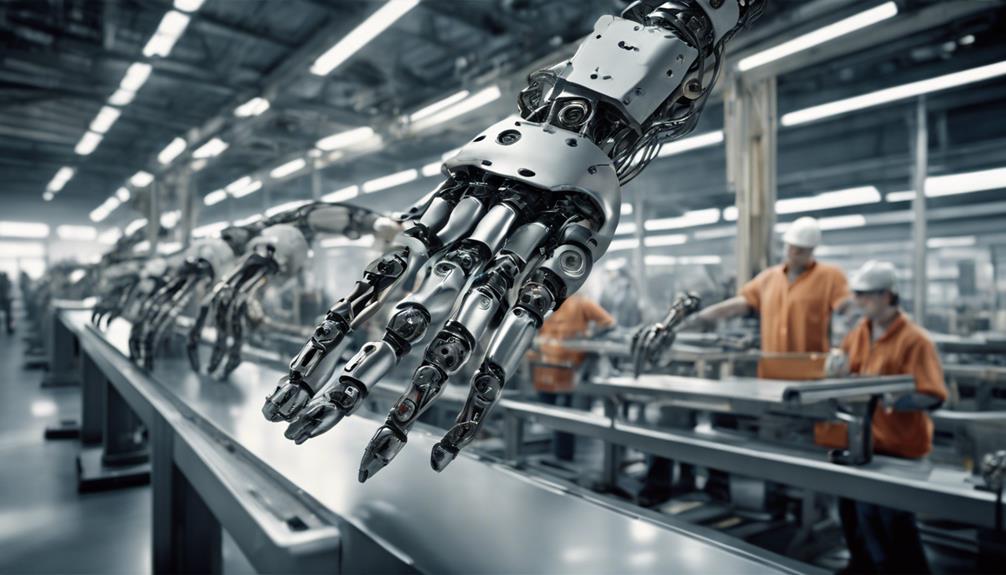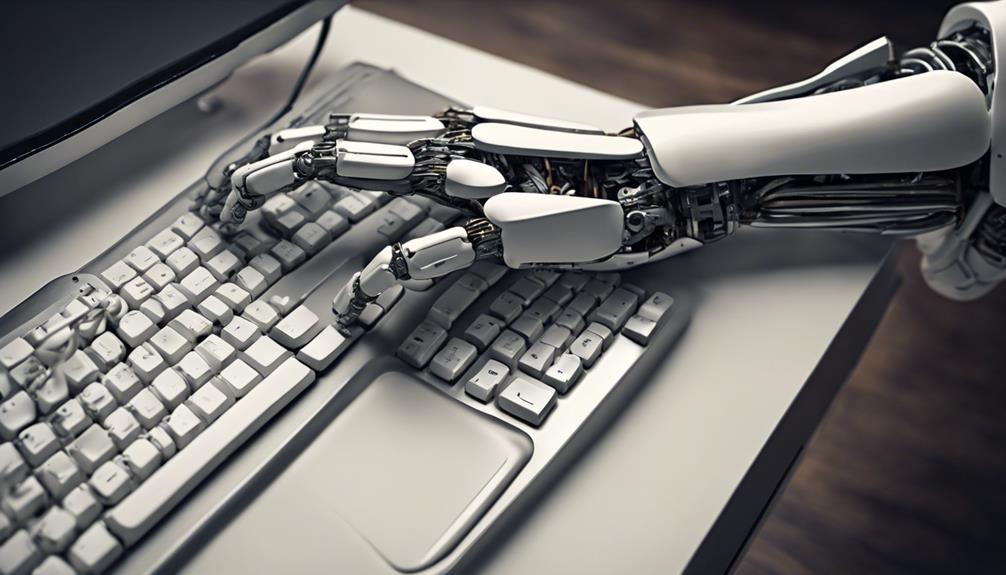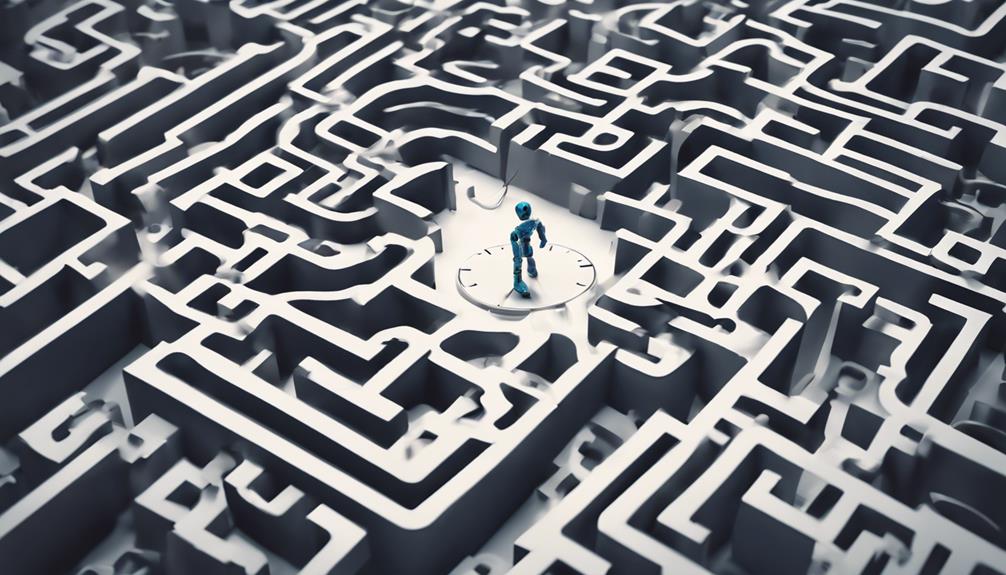AI is rapidly transforming multiple industries, with significant implications for employment. As AI capabilities advance in tasks traditionally performed by humans, concerns about job displacement and increased automation are on the rise.
In this guide, we explore the intricate ways in which AI is reshaping the job market and the strategies individuals and organizations must adopt to navigate this transformative landscape. From the jobs that are most vulnerable to automation to those that remain resilient, understanding the nuanced interplay between AI and employment is crucial in today's rapidly evolving technological era.
Key Takeaways
- Jobs requiring intelligence, problem-solving, and human interaction are less likely to be automated.
- Upskilling in AI tools is essential for staying competitive in the evolving job market.
- Professions like customer service reps, truck drivers, and analysts are at high risk of automation.
- Skills like creativity, empathy, and critical thinking make certain jobs resilient to AI takeover.
Impact of AI on Job Market
The impact of Artificial Intelligence (AI) on the job market is profound, with projections indicating the potential replacement of 85 million jobs globally by 2025 across various industries. As AI continues to evolve, it is expected to replace certain roles that involve repetitive tasks or low levels of creativity. Jobs at risk of being replaced by AI include customer service representatives, car and truck drivers, computer programmers, research analysts, and paralegals. However, jobs that require high levels of intelligence, complex problem-solving skills, and human interaction, such as teachers, nurses, therapists, and tradespeople, are less likely to be automated.
While AI may replace some jobs, it also creates the need for new tasks and roles. AI technologies are expected to redirect human efforts towards more productive tasks, leading to the creation of new jobs that require skills in managing and developing AI systems. Therefore, as AI transforms the job market, workers may need to adapt by acquiring new skills to remain competitive in the evolving landscape of Artificial Intelligence.
Industries Affected by Automation
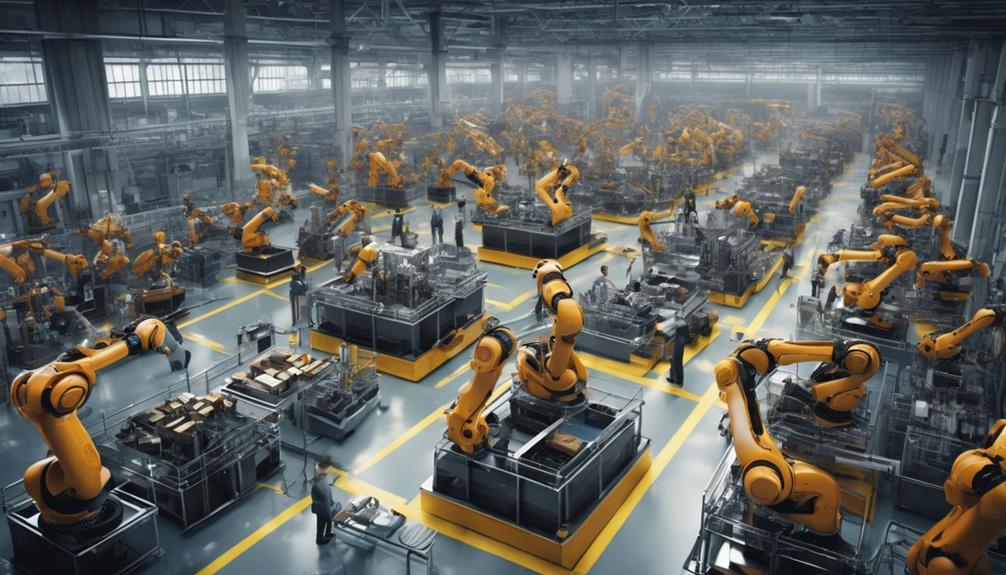
With the proliferation of Artificial Intelligence (AI) across industries, the impact of automation is notably evident in sectors like healthcare, agriculture, and industrial fields.
Industries Affected by Automation:
- Healthcare: AI is revolutionizing healthcare by automating tasks such as diagnostics, personalized treatment plans, and administrative duties, impacting various medical professions.
- Agriculture: Automation in agriculture is transforming farming practices through drones, robotic systems, and AI-powered equipment, leading to significant changes in traditional farming jobs.
- Industrial Sectors: AI-driven automation is reshaping industrial processes by streamlining production, maintenance, and quality control tasks, affecting job roles in manufacturing and production lines.
These industries are experiencing global disruptions in their hiring practices due to the increasing integration of AI technologies.
As AI continues to advance, professions such as customer service representatives, truck drivers, and research analysts are at high risk of being replaced by automation, highlighting the evolving landscape of the workforce driven by technological advancements.
Strategies for Workers and Organizations
In navigating the challenges posed by automation and Artificial Intelligence (AI), strategic planning for the upskilling of workers and the transformation of organizational processes is paramount. Businesses need to invest in training employees in AI tools to stay competitive and address the talent gap. This upskilling not only benefits the employees personally but also enhances the financial performance and reputation of the organization. The key skills required in the AI era, such as critical thinking, problem-solving, emotional intelligence, and adaptability, are essential for employees to thrive in a changing work environment. Continuous learning is crucial for individuals to stay relevant in their roles and for companies to adapt to technological advancements effectively. Change management strategies play a vital role in supporting employees through these transitions, ensuring a smooth integration of new skills and processes. The table below highlights the critical strategies for workers and organizations in the AI era.
| Strategies | Description | Benefits |
|---|---|---|
| Upskilling | Training employees in AI skills | Financial growth, talent retention |
| Talent Gap | Addressing future shortages through training | Reduced disruptions, market relevance |
| New Skills | Critical thinking, problem-solving, adaptability | Enhanced productivity, innovation |
Jobs Replaced by AI
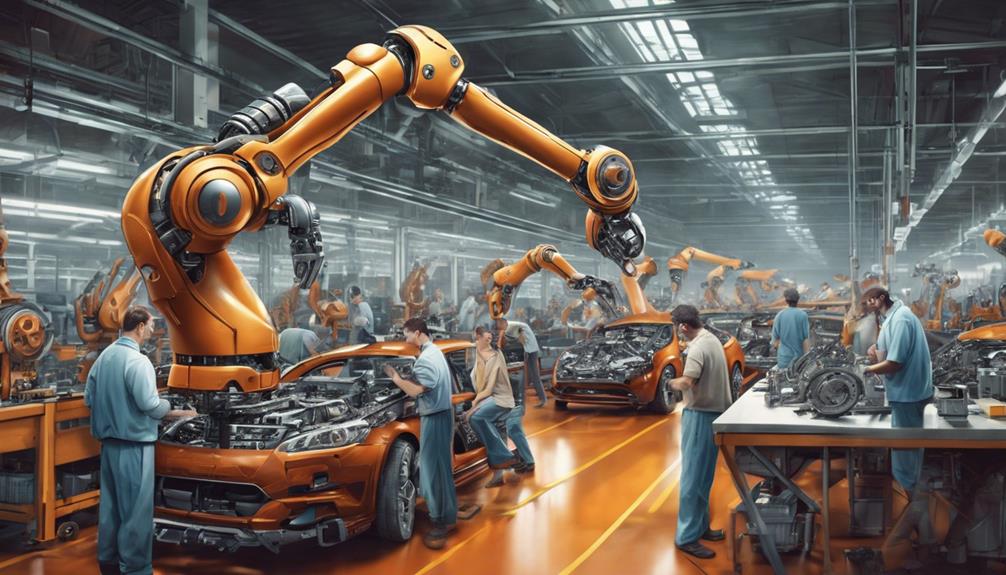
Navigating the impact of AI on the workforce requires a strategic understanding of the specific occupations at risk of being displaced by automation and machine intelligence.
- Customer service representatives are increasingly being replaced by automation and chatbots for handling inquiries, streamlining processes, and reducing costs for companies.
- Autonomous vehicles are revolutionizing transportation and reducing the need for human car and truck drivers, leading to potential job displacement in the transportation sector.
- AI tools like ChatGPT have the potential to automate coding tasks, putting computer programmers at risk of job replacement as these tools become more advanced and capable.
As AI continues to advance, it is crucial for workers to adapt to changing job landscapes and acquire new skills that complement automation. Understanding which jobs are most susceptible to AI replacement is essential for individuals and organizations to prepare for the future of work in an increasingly automated world.
Jobs AI Won't Replace
Certain occupations in the workforce demonstrate resilience to automation and artificial intelligence, maintaining their relevance due to the intricate blend of complex tasks and human interaction they require. Jobs that involve a high level of intelligence, the need for a human touch, and the utilization of soft skills are less likely to be replaced by AI.
Skilled workers such as artists, teachers, nurses, and tradespeople fall into this category. These professions demand creativity, empathy, critical thinking, and physical dexterity that are challenging for AI to replicate. For instance, while AI can assist with certain aspects of writing or generate art, the quality, creativity, and human touch brought by human writers and artists remain unmatched.
Similarly, occupations like teaching, nursing, and skilled trades necessitate direct human interaction, emotional intelligence, and adaptability, making them less susceptible to automation. In essence, jobs that rely heavily on the unique capabilities of human beings are less likely to be completely replaced by artificial intelligence.
Frequently Asked Questions
Will Artificial Intelligence Take Your Job?
The impact of artificial intelligence on job displacement is a critical concern. As automation advances, roles susceptible to routine tasks face greater risk. However, professions reliant on complex human interaction and nuanced decision-making are less vulnerable.
What Jobs Will Be Most Affected by Ai?
Jobs most affected by AI include customer service representatives, car/truck drivers, computer programmers, research analysts, and paralegals. Automation and AI technologies are streamlining tasks in these fields, leading to potential job displacement as machines perform tasks efficiently.
How AI Is Creating an Employment?
Artificial Intelligence is generating employment opportunities by creating 133 million new job roles by 2022. Businesses are upskilling employees in AI to meet evolving demands, enhancing financial performance, reputation, and preparing for talent shortages.
Which Jobs AI Can T Replace?
Jobs that require complex human interactions, critical thinking, creativity, and emotional intelligence are less likely to be replaced by AI. Occupations like teachers, nurses, therapists, and artists are secure from full automation due to these unique human qualities.
Conclusion
In conclusion, the comprehensive guide on how artificial intelligence is impacting the job market sheds light on the industries affected by automation, strategies for workers and organizations, jobs replaced by AI, and those that AI won't replace.
The data-driven analysis underscores the necessity for individuals to adapt and upskill to navigate the evolving labor market influenced by AI. As AI continues to reshape the workforce, proactive measures and lifelong learning are crucial for staying relevant in the rapidly changing landscape.
